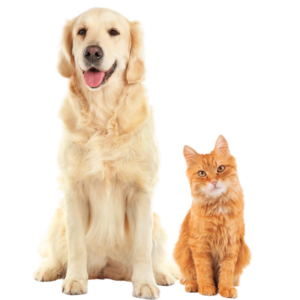When a dog is viewed from behind, the anal glands (also called anal sacs) are located on each side of and slightly below the anal opening at the 4 o’clock and 8 o’clock positions. A tiny duct or tube leads from the gland under the skin to an opening directly beside the anus. The material secreted into these sacs is thick, oily, stinky and is commonly described as smelling fishy.
Dogs recognize each other by smelling in the general area of the anus since each animal’s anal glands produce a unique scent.
In dogs, every time a stool is passed, it should put enough pressure on the anal glands that some of the secretions are deposited on the surface of the stool. However, some animals are unable to empty their glands on their own at all, which leads to the glands becoming impacted and uncomfortable. Common signs that your dog’s anal glands are full include: holding their tails down, shivering, reluctance to walk or hiding. Expression of the anal sacs every few weeks or months often will help prevent anal gland fluid from accumulating and becoming thickened again. High fibre diets have been shown to help prevent anal gland disease in at-risk dogs, especially those that are obese.
Should I drain my dog’s anal glands at home?
Maybe not. Expressing anal glands can be quite messy and smelly, and sometimes a challenge to do. However, less squeamish pet owners may want to try it. The problem is that no matter what anal gland expression technique you use, it is not generally a one person job. Pets tend not to appreciate having their anal area manipulated and even the most docile animal may bite. Squirming, at the very least, is expected so a helper experienced in animal restraint is likely going to be needed to control the front end of the pet. Care should be taken when expressing the anal glands, as too much pressure applied to an impacted anal gland could lead to rupture. All things considered, anal gland expression may be something best left to anal gland professionals.
If my dog scoots on the carpet a lot, does this mean their anal glands are impacted?
This behaviour is most commonly linked to anal glands, however, itchy skin, tapeworms, or even lower back pain can also result in scooting behaviours.



